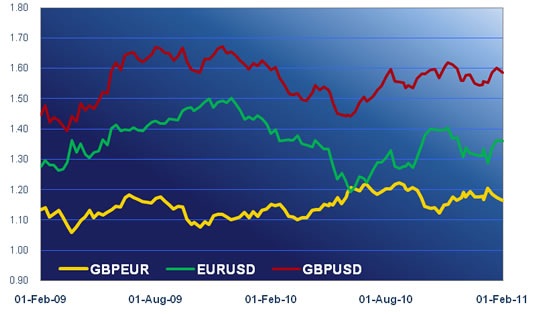Good morning. Labour party leader Ed Miliband wants to see a “British Promise” equivalent to the “American Dream”. He might be on shaky ground. The American Dream seems to consist of a quixotic optimism that trillions of dollars worth of quantitative easing and cheap dollars will not distort food and commodity prices across the world. The British Promise has actually been around for years. It used to be summarised as “jam tomorrow”. In 21st century guise the British Promise is that people’s saving will not be entirely wiped out; inflation will eventually fall back into line when the temporary impact of US quantitative easing and cheap dollars has faded.
|
|||||||||||||
| Economic releases | |||||||||||||
|
|||||||||||||
Federal Reserve Chairman Ben Bernanke says it is not his fault. He told the American National Press Club yesterday that “what’s happening is not a dollar effect, it’s a growth effect”. There was a pot/kettle moment during the speech when he “cited China specifically for putting its economy – and those of other emerging markets – at risk of higher inflation by keeping the value of its currency too low.” Higher inflation is Mr Bernanke’s own personal American Dream.
What was most interesting yesterday was the way the European Central Bank jumped aboard the “It’ll be alright on the night” bandwagon with Mr Bernanke and Bank of England Governor Mervyn King. ECB President Jean-Claude Trichet sided with Mr King when he said in his press conference that the 1% refinancing rate remains “appropriate” and that Euroland’s 2.4% inflation rate is simply the result of “short-term upward pressure”. Whilst there had been no reaction by the euro to the earlier rate announcement, the currency came under pressure as M Trichet elaborated on the governing council’s thinking. Up until that point investors had been under the impression that the president’s comments last month, coupled with a rapid rise in inflation from 1.9% to 2.4%, pointed to higher euro interest rates. They had expected him to express similarly hawkish views yesterday. But he didn’t. So they sold the euro, taking it a cent and a half lower against the US dollar and knocking one and a half yen off its value. Although its decline against the pound was less dramatic sterling still opens this morning a cent better than it began Thursday.
The first half of that gain came as the result of a services sector purchasing managers’ index (PMI) that was as unexpectedly good as its predecessor had been unexpectedly bad. The December figure had hurt the pound when it dropped below the boom/bust divide to 49.7. The prediction yesterday morning was that the January figure would be back in the growth zone at 51.3. When the figure came in at 54.5 investors were impressed and took sterling higher. Its instant gains against the US and commodity dollars and the yen were short-lived but it put in a second rally against the euro when the ECB clarified its position on inflation and interest rates.
On balance, Thursday’s other figures worked against the euro and to the favour of dollars. Decent services sector PMIs from Germany (60.3) and Euroland (55.9) were offset by an unexpected and disappointing -0.6% fall in euro zone retail sales. Sales for December were -0.9% down on the year. In the States, factory orders rose by 0.2% in December, having been expected to fall, and the services PMI came in at 59.4, a point and a half above the forecast level. Weekly jobless claims were lower than expected.
The only game in town today is the North American employment data. In Canada another 20k people are expected to have found jobs and the rate of unemployment should be steady at 7.6%. In the States non-farm payrolls are projected to have risen by some 140k in January with an uptick in the unemployment rate from 9.4% to 9.5%. Having seen the market’s positive attitude to the dollar yesterday, the traditional rules should apply today: a figure higher than 150k ought to take the dollar higher while anything below 100k would bring disappointment. Have a good weekend.






